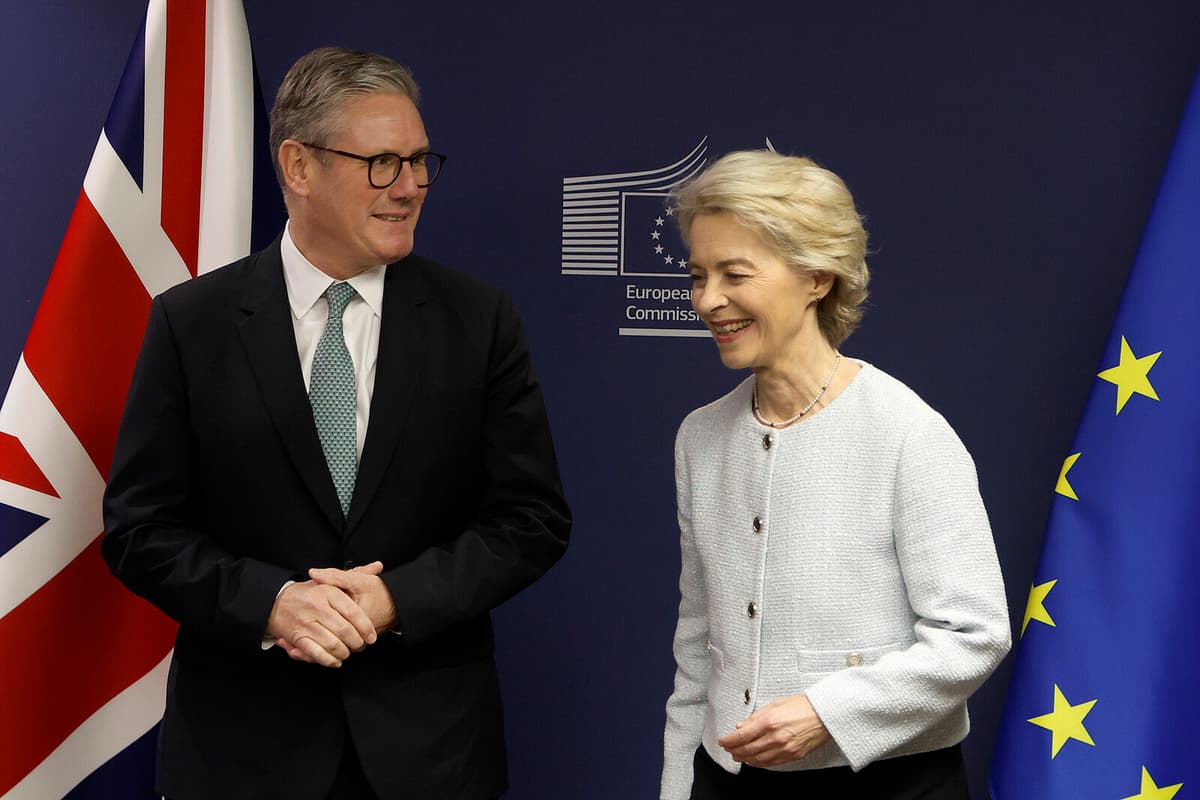Wednesday's visit to Brussels by Prime Minister Keir Starmer was the first British one since 2019. But now it's going to be different, hopes both he and EU Commission President Ursula von der Leyen.
I strongly believe that the British public wants to return to pragmatic and sensible leadership when it comes to handling our closest neighbors – to make Brexit work and deliver ways to increase economic growth, strengthen our security, and address common challenges such as irregular migration, said Starmer in a brief press appearance before the meeting with von der Leyen.
Like-minded parties like us must cooperate more closely. We should explore opportunities for further cooperation, she said.
Annual Summits
According to a joint statement afterwards, the EU and the UK will now work towards a "stable, positive, and forward-looking relationship" that is in both parties' interest.
The plans will be developed at a rapid pace over the coming months to primarily identify areas that can benefit both, such as "economy, energy, security, and resilience".
A new meeting between Starmer and von der Leyen is promised already for later this autumn, and from next year, the goal is to hold regular summits in the style of those the EU already has with countries like Japan, Canada, and China.
Unclear Relationship
What will be included in the "forward-looking relationship" is, however, still unclear.
The UK is happy to discuss migration and growth – but has clearly rejected all thoughts of returning to the EU's customs union or single market, or allowing any free movement. Even an EU proposal to at least facilitate mutual youth travel has so far been met with a cold shoulder from London.
The UK was part of the EU from January 1, 1973, to January 31, 2020.
The exit occurred after a narrow majority of Britons voted for "Brexit" – to leave the EU – in a referendum in June 2016.
Thereafter, tough negotiations followed, which ultimately resulted in a series of agreements that handle the exit and the relationship between the EU and the UK.






